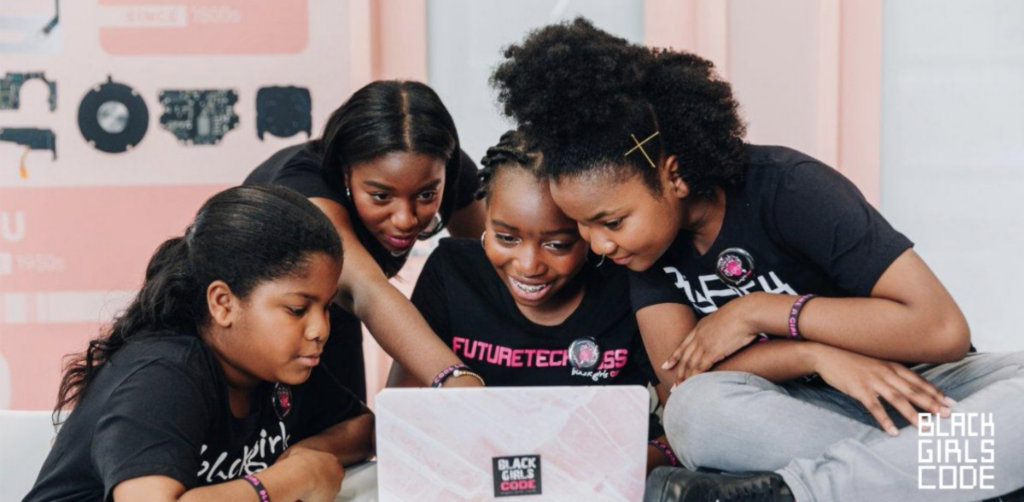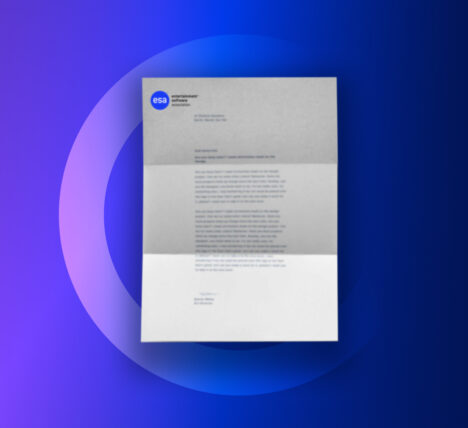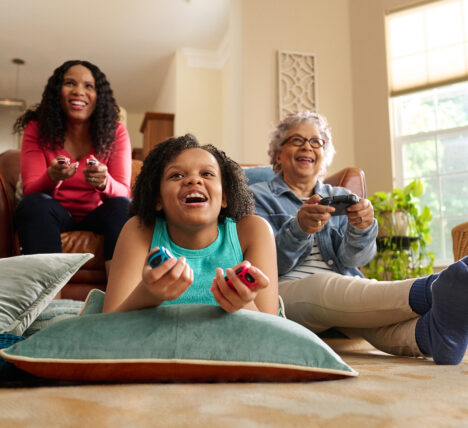Aiming to increase diversity in the video game and other tech industries, the ESA Foundation teams up with Black Girls CODE to empower K-12 students from underrepresented communities.
By Anastasia Staten
March 4, 2021
It’s no secret that minority women are vastly underrepresented when it comes to educational and career opportunities in STEAM, including those in the video game industry. But tackling these challenges is far from easy.
Here in the United States, most girls in general don’t pursue STEAM careers, despite having an early interest in science and technology. According to the National Girls Collaborative Project, women only earn 18% of computer science bachelor’s degrees in the United States. Although women make up 47 percent of all employed adults in the U.S., they hold only 25 percent of computing roles, according to the National Center for Women & Information Technology (NCWIT). And, of the 25 percent of women working in tech, black and Hispanic women accounted for just 3 percent and 1 percent, respectively.

For more than 20 years, the ESA Foundation has played a significant role in supporting girls, women and minorities pursuing careers in the video game industry by providing educational grants and scholarships. But there’s still tons of work to be done. That’s why I’m so excited that, with the generous support of ESA members, the Foundation is launching a partnership with Black Girls CODE (BGC).
Together with BGC, we will fund, design and implement an interactive education and mentoring program in seven U.S. cities. The goal is to help 7,000 girls of color in underserved communities prepare for STEAM careers in the video game and other tech industries. Leading game companies are a huge part of this effort, providing critical funding as well as resources and hands-on mentorship.
Our partnership with Black Girls CODE is tailor-made for an era in which individuals, organizations and industries are demanding an increase in diversity and equity. BGC, an Oakland-based organization operating in 15 cities across the country, has been working since 2011 to provide girls ages 7-17 with after-school programs teaching web and video game design, robotics, mobile app development and more. The ESA Foundation’s work often overlaps, and some of our current and formers scholars are BGC alumni.
“When I was younger, and participated in activities involving games and technology, I was the only person who looked like me in the room,” says Sloane Miller, a Foundation scholar and North Carolina A&T State University student who participated in Black Girls CODE programs for three years. “BGC taught me I could combine my love of video games with my passion for tech and develop skills I can use in college and my career.”
With this partnership, the ESA Foundation can help bolster diversity in meaningful and sustainable ways. More importantly, the programs we’re developing with BGC have the potential to directly impact and empower girls of color who, otherwise, might never consider careers in the video game industry. And with the support of many of the world’s leading game companies, hopefully we can provide young women with the tools and connections needed to one day create games many others will want to play.
Looking ahead, we’re excited to get to help build virtual learning experiences and work with the local BGC chapters in Dallas, Houston, Los Angeles, New York, Raleigh, San Francisco and Washington, D.C. Many thanks to Black Girls CODE President Kimberly Bryant for working with us on this, and to ESA President & CEO Stanley Pierre-Louis for helping galvanize critical industry support for this initiative.
Anastasia Staten is executive director of the ESA Foundation.



